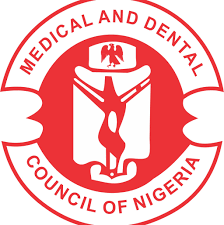Ovarian cancer is strictly women’s health challenge. This is simply because only the female specie has ovaries. Women have two ovaries – one on each side of the uterus (womb).
Each ovary is about the size of an almond and they produce eggs (ova) as well as the hormones oestrogen and progesterone. These hormones play an important part in the menstrual cycle and pregnancy.
Oncologists describe ovarian cancer as a type of cancer that begins in the ovaries, and it is the fifth leading cause of cancer-related deaths among women
Head of Department, Radiation Biology, Radiotherapy, Radiodiagnosis and Radiography at the College of Medicine, Lagos University Teaching Hospital, Prof. Remi Ajekigbe, says among women, the five most common sites usually diagnosed for cancers are the breasts, colorectum, lung, cervix, and stomach cancer.
Risk factors for ovarian cancer
For every disease, there are usually causative factors, otherwise known as ‘risks.’ In the case of ovarian cancer, though, experts confess that they do not know exactly what causes epithelial ovarian cancer. They, however, agree that some factors may increase the risk. You need to know them so that you can take precautions as much as possible. Some of the risk factors for ovarian cancers are as follow…
Using talcum powder
According to scientists at the online portal, cancerresearchuk.org, using talcum powder between the legs has been thought to increase the risk of ovarian cancer!
“The powder could, in theory, travel up into the vagina and then through the cervix into the womb. If it then worked its way down the fallopian tubes to the ovaries, it could get into the ovaries themselves and cause irritation. Constant irritation could potentially cause inflammation and lead to cancerous changes in cells.
“There is not a link between talcum powder use and ovarian cancer risk for women who use talcum powder on other parts of their bodies, and not between their legs,” the scientists submit. Scary, isn’t it!
Old age
While old age is a blessing and is not necessarily meant to breed diseases, it sometimes comes with some undesirable baggage such as certain health concerns. Unfortunately, ovarian cancer is one of the diseases that could afflict an ageing woman.
Ajekigbe notes that, as with most cancers, the risk of developing ovarian cancer increases as a woman gets older; and that most cases of ovarian cancer happen among women who have reached menopause.

Researchers say around 50 per cent of women who are diagnosed with ovarian cancer are aged 63 years or older.
Inherited faulty genes
Evolutionary biologists say that most ovarian cancers are due to gene changes that develop during a woman’s life and are not inherited. However, they say, about one in 10 ovarian cancers are caused by an inherited faulty gene – the same faulty genes that also increase the risk of breast cancer.
“What this translates into is that if you have very close relatives (such as mother, sister) who have had ovarian cancer or breast cancer, you may be more at risk of developing ovarian cancer than other women in the population,” Ajekigbe submits.
Obesity
Scientists at the World Cancer Research Fund and the American Institute for Cancer Research say being overweight or obese is a risk factor for this disease, hence the need to shed excess weight while there’s still hope.
The scientists conclude, “Previously, we only knew about risk factors that are fixed, such as age and family history of the disease; but now, we can say that keeping to a healthy weight helps reduce the risk of getting ovarian cancer.”
Reproductive history
Women who have been pregnant and carried it to term before age 26 have a lower risk of ovarian cancer than women who have not, experts advise. They say the risk goes down with each full-term pregnancy.
Conversely, women who have their first full-term pregnancy after age 35 or who never carried a pregnancy to term have a higher risk of ovarian cancer.
Again, the experts advise, breastfeeding may lower the risk even further. “Having breastfed your children may lower the risk of ovarian cancer. This may be because your ovaries normally stop producing eggs each month while you are breastfeeding frequently.
“Women who breastfed had a lower risk of getting ovarian cancer, compared with women who never breastfed. The risk was lower in women who breast fed for a longer time,” they submit.
Warning signs you should never ignore
According to physicians, despite the fact that ovarian cancer is a silent killer, being attuned to the way your body functions will help you to realise that something untoward might be ongoing if you notice:
• Bloating or a swollen abdomen
• Increased abdominal size
• Urinary frequency, urgency or difficulty
• Problems eating, such as feeling full quickly after a meal
• Constipation, diarrhoea
• Nausea
• Pelvic pain or pressure
• Pain anywhere in the abdomen
• Vaginal bleeding
• Back pain
• Painful sex
• Weight loss
• Changes in menstruation
The bottom line: If you notice more than one of these symptoms at the same time, please see your doctor without wasting time.
BY SOLA AYO-ADERELE
THE PUNCH
ABUJA: Training Schedule for Basic Life Support BLS, Pediatric Advanced Life Support (PALS), Advanced Cardiovascular Life Support ACLS, First Aid, CPR, AED
PORTHARCOURT: Training Schedule for Basic Life Support BLS, Pediatric Advanced Life Support (PALS), Advanced Cardiovascular Life Support ACLS, First Aid, CPR, AED
LAGOS: Training Schedule for Basic Life Support BLS, Pediatric Advanced Life Support (PALS), Advanced Cardiovascular Life Support ACLS, First Aid, CPR, AED




